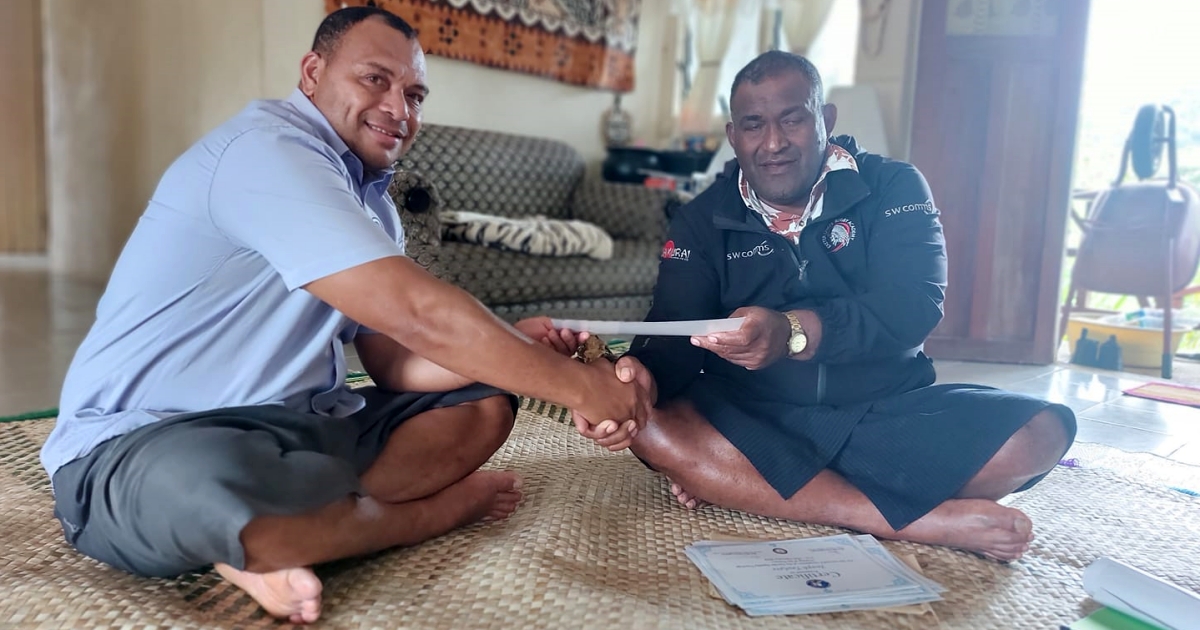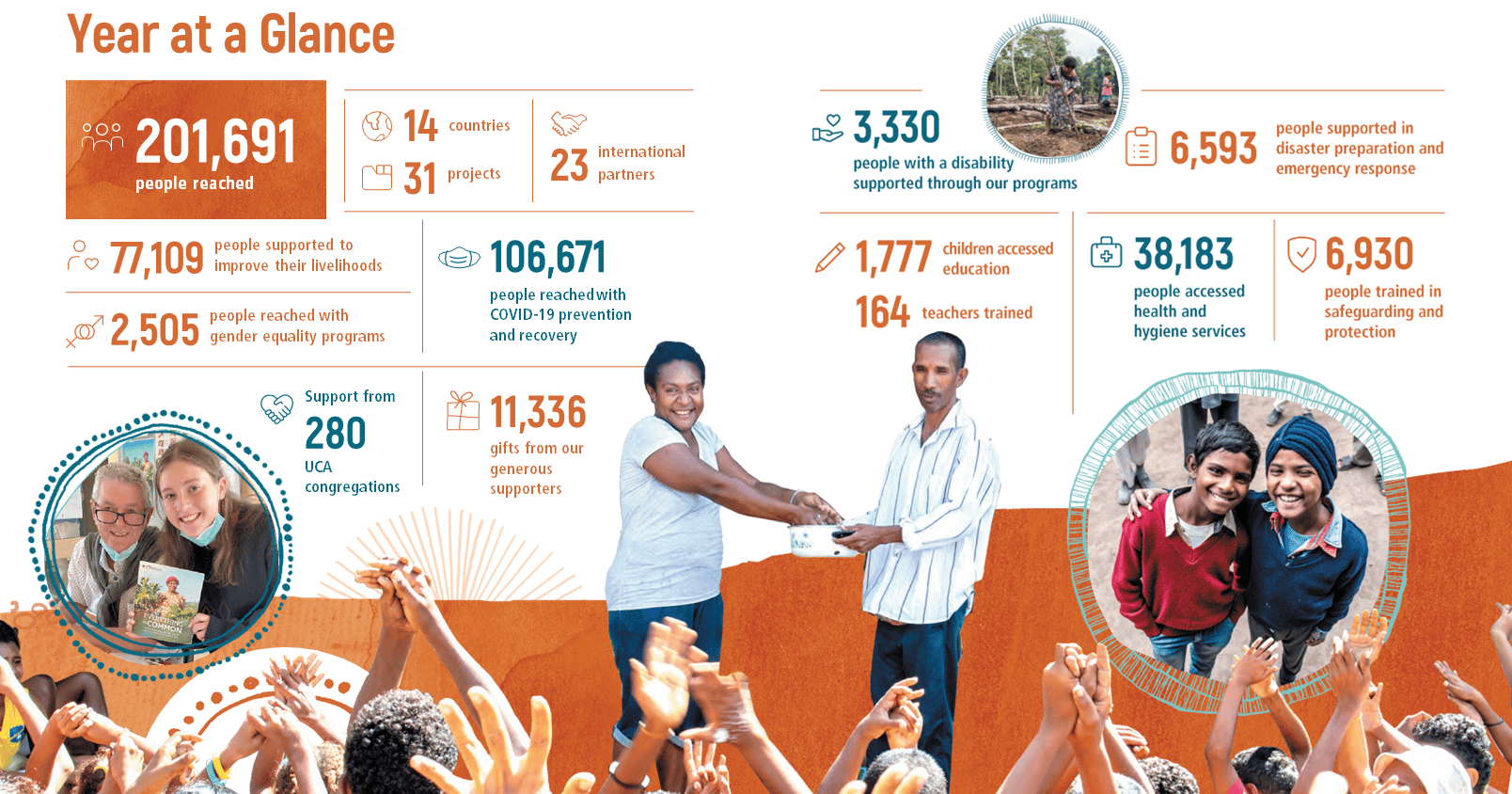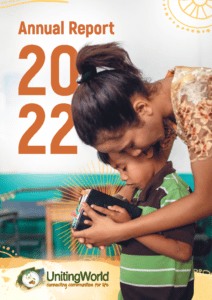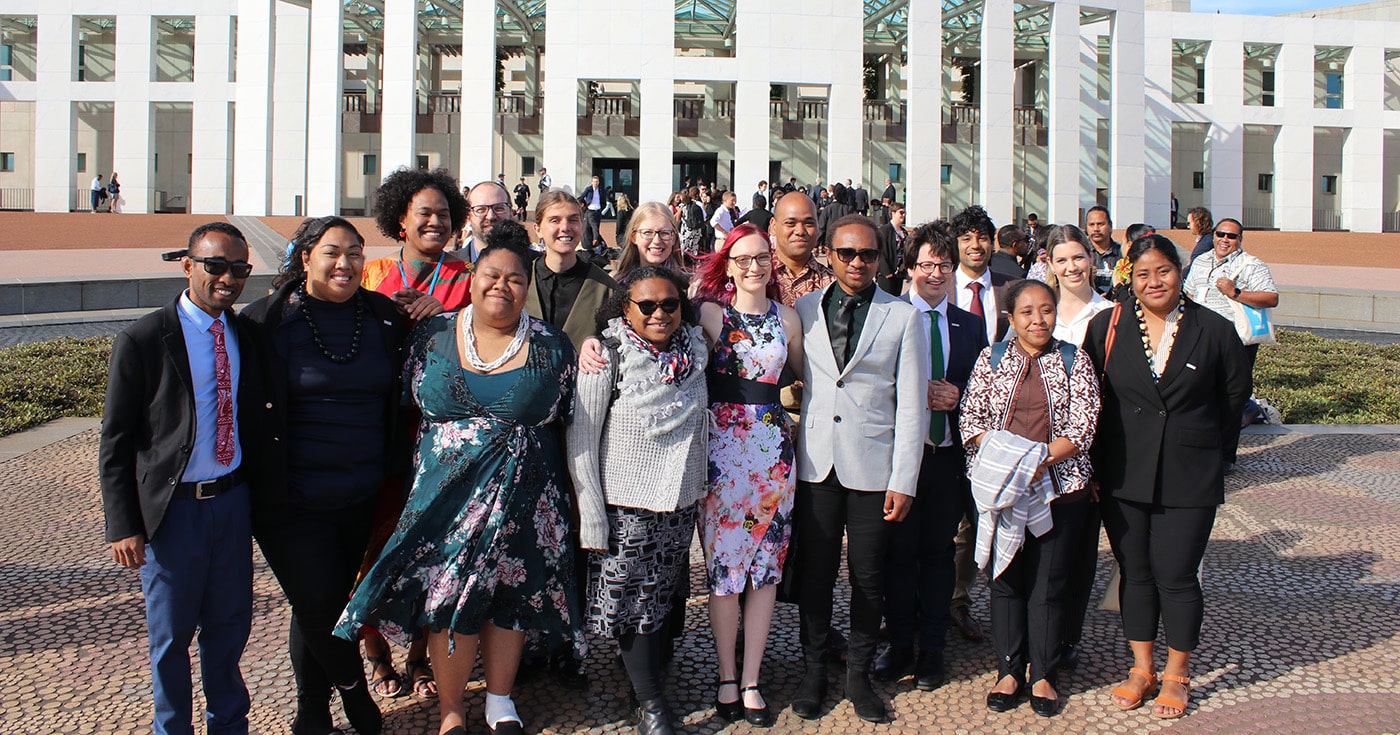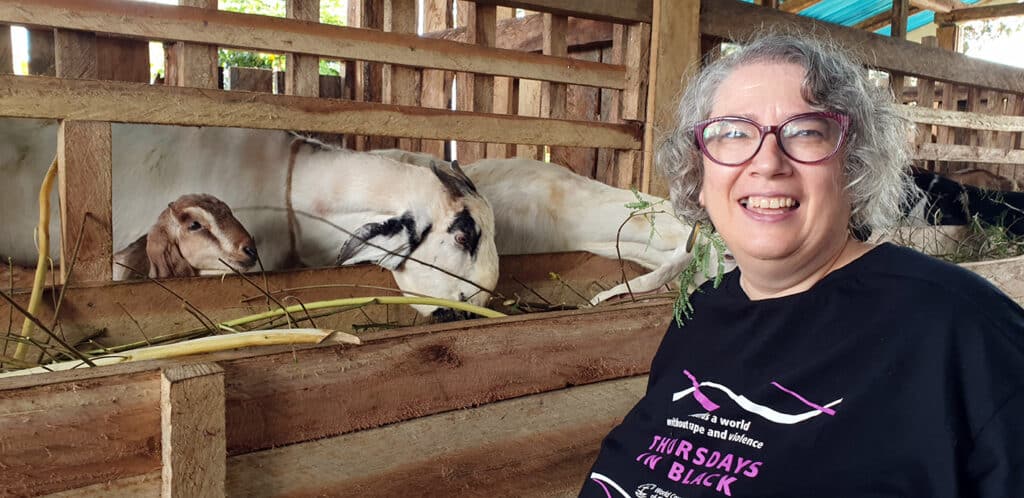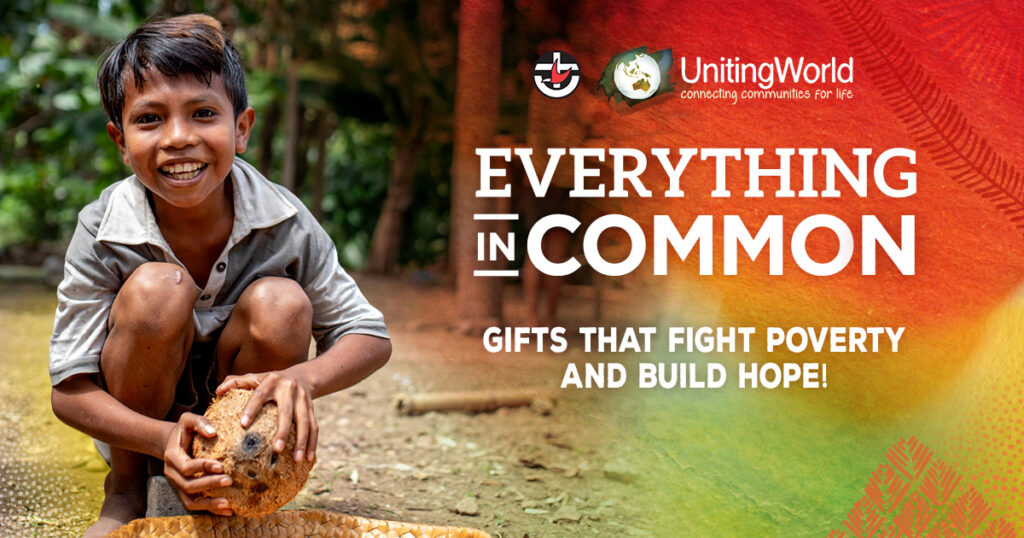100 young people from across the Australia-Pacific region gathered on Ngunnawal country (Canberra) this week to build relationships and advocate together for the issues that matter to them.
Coordinated by Micah Australia and the Pacific Conference of Churches (PCC), the inaugural Pacific Australian Emerging Leaders Summit (PAELS) brought together delegates from more than a dozen Pacific Island nations and First and Second Peoples from across Australia, including Pacific diaspora communities.
Young people from the Uniting Church in Australia (UCA) and the Uniting Aboriginal and Islander Christian Congress (UAICC) were part of the summit, as well as UCA partner churches from Tonga, Papua New Guinea, Fiji, Tuvalu, Kiribati, Samoa, the Solomon Islands and West Papua.
Climate change, gender equality, self determination, youth empowerment and economic recovery were key issues for the delegation.
Led by First Nations Christian leaders, delegates spent the first two days listening, learning and sharing their cultures and experiences with one another. They heard about the issues affecting the First Peoples of Australia and responded with lament, prayer and commitments of solidarity.
The deep conversations and learning from First Peoples continued as the delegates were invited to the Aboriginal Tent Embassy, where they received a generous welcome and storytelling from elders.
The site is the longest-running protest for Indigenous land rights, sovereignty and self-determination in the world, marking its 50-year anniversary this year.
PCC General Secretary Rev James Bhagwan responded to their welcome as an elder of the Pacific delegates.
“The Australian Government wants to have a First Nations foreign policy, and we welcome that,” he said. “But we have learned that we cannot have a First Nations foreign policy until we have a truly First Nations-led domestic policy in this land.”
The Pasifika young people also shared the Fijian hymn Noqu Masu (this is my prayer).
After being equipped for relational advocacy together in small and diverse lobby groups, delegates headed to Parliament House for meetings with more than 80 Members of Parliament.
They were welcomed by Minister for International Development Pat Conroy and Shadow Minister Michael McCormack.
On the second day at Parliament House, Minister for Indigenous Australians Linda Burney gave a powerful address to the delegates about the struggle for a voice, treaty and truth telling; encouraging them to not be disheartened by setbacks.
As part of a workshop panel sharing stories of climate action, Raúl Sugunananthan and Mikali Anagnostis from Christian Students Uniting shared their experiences of organising in the Uniting Church to turn out 360 people to the School Strike for Climate march in Sydney in 2019.
Raúl shared a reflection about his time at the Micah summit.
“Connecting with leaders from across Australia and the Pacific was such a valuable experience because it showed me the vibrancy and diversity of the church beyond my Inner-West Sydney bubble, he said.
“Through the amazing young leaders I met, I learnt first-hand that God is moving through the leadership of First Nations communities from Arnhem Land to Sydney. God is moving through the Pasifika songs and stories woven throughout their island nations and diaspora communities. God is moving through the courage and determination of people striving for self-determination across our region, including Australia.”
“I can’t wait to continue this journey with emerging leaders from many cultures, genders and abilities who are all unified through their passion for Jesus and justice,” said Raul.
UnitingWorld Program Manager and Uniting Church member Mia Berry was also a delegate at the summit.
“Connecting with young leaders from across the Pacific and Australia was such a valuable opportunity for listening to the experiences, barriers and priorities for young people across our region, and learning to advocate as a united Pacific region,” she said.
“The conversations and relationship-building that took place across the four days have laid the foundations for an ongoing network and community amongst the delegates, which will allow us to keep momentum.
From the perspective of my work at the UnitingWorld, the opportunity to meet with young leaders from the communities and churches we work with has given me a new and deeper understanding of these contexts.”
It was an incredible time of strengthening connections across cultures, learning from First Peoples and showing what is possible when people of faith work together for a more just and sustainable future.
We can’t wait to see what comes next for this powerful network of leaders!
See photos from the event.
(Photo header: UCA and UAICC summit delegates with representatives from UCA partner churches, UnitingWorld staff and other Uniting Church members)
UnitingWorld is a member of Micah Australia. The Uniting Church in Australia is a member of the Pacific Conference of Churches.
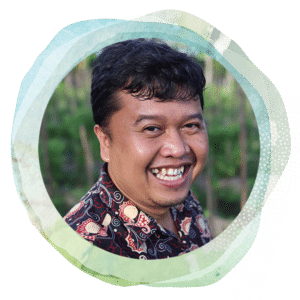
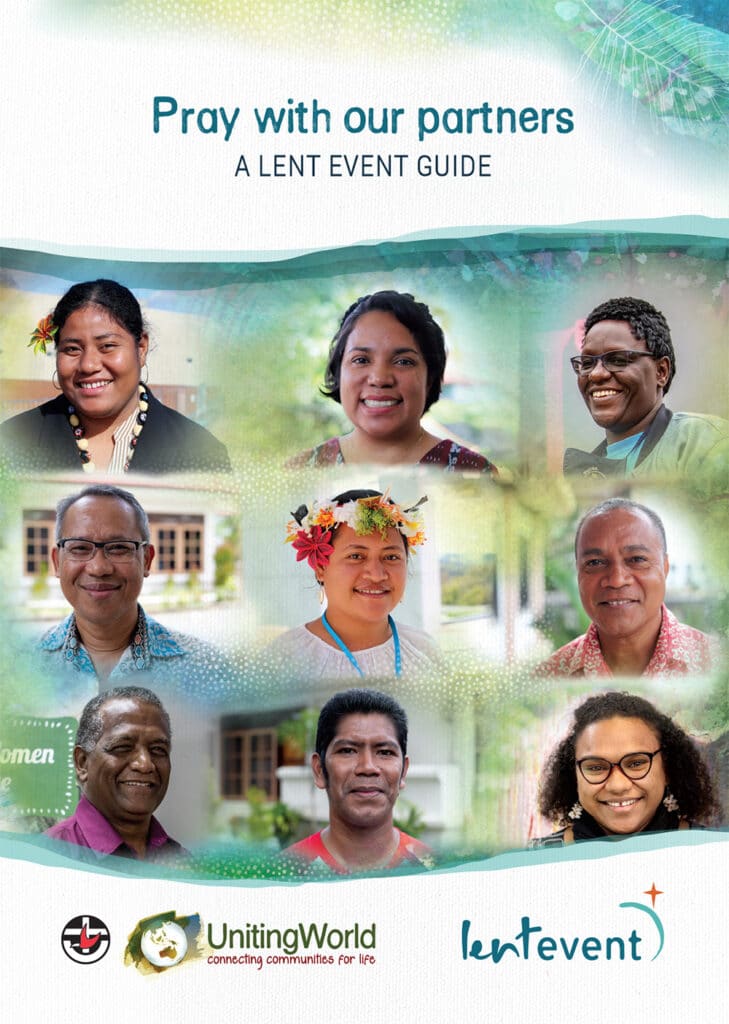 Pray in solidarity with our partners
Pray in solidarity with our partners
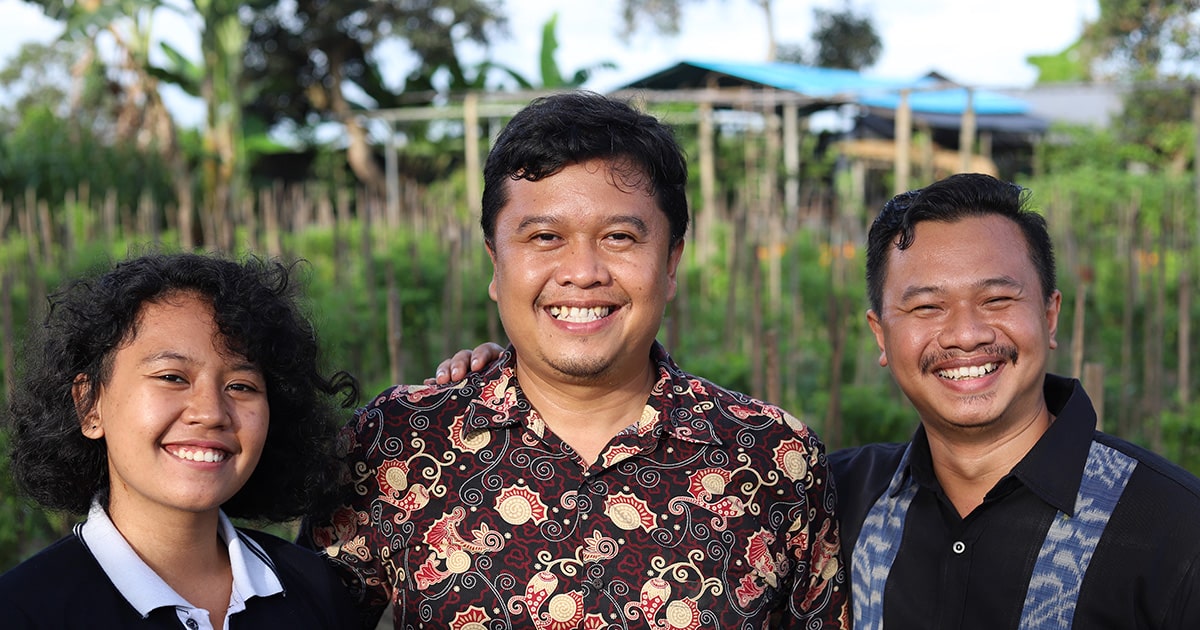
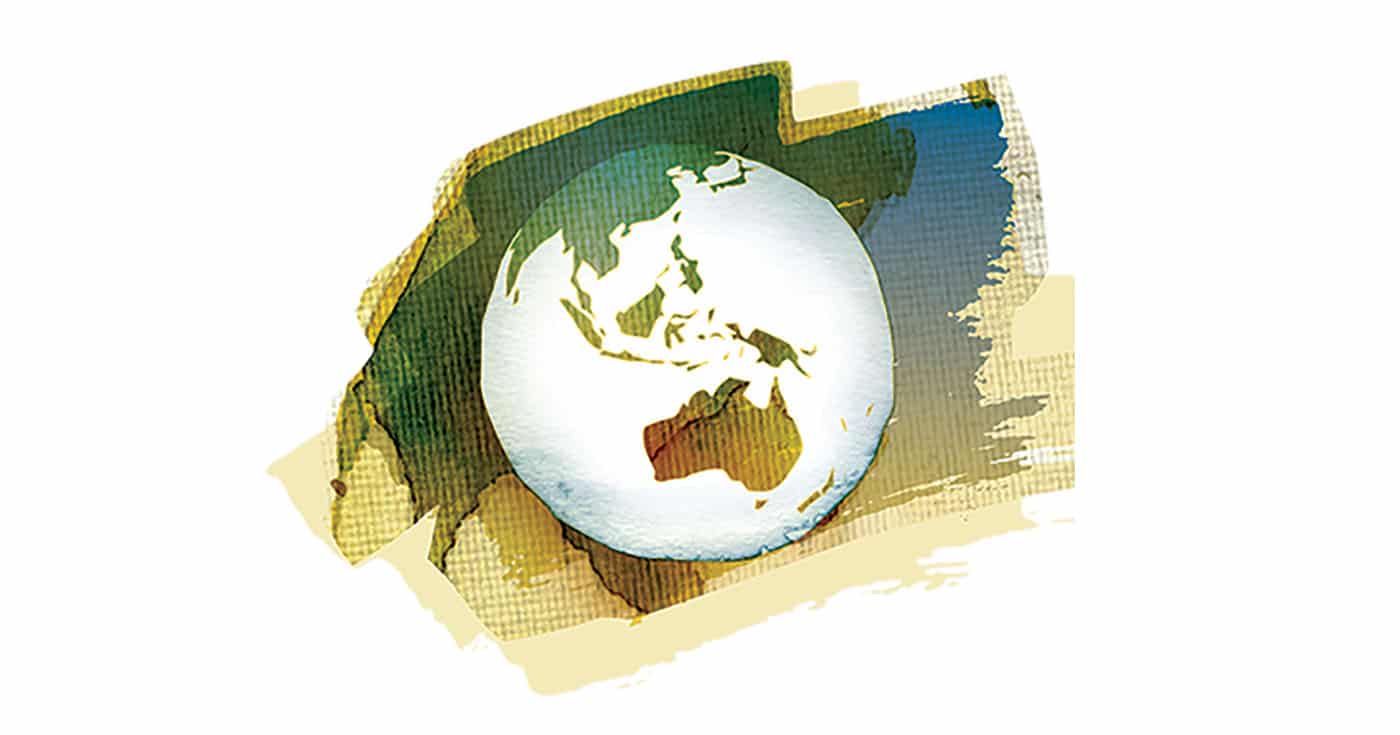
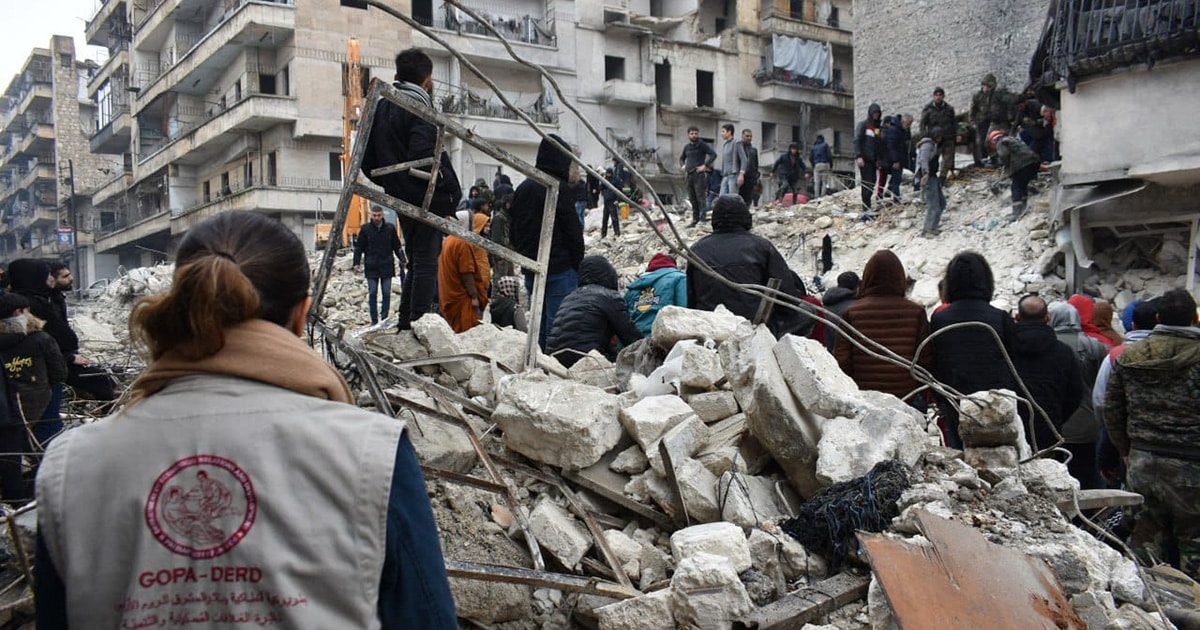
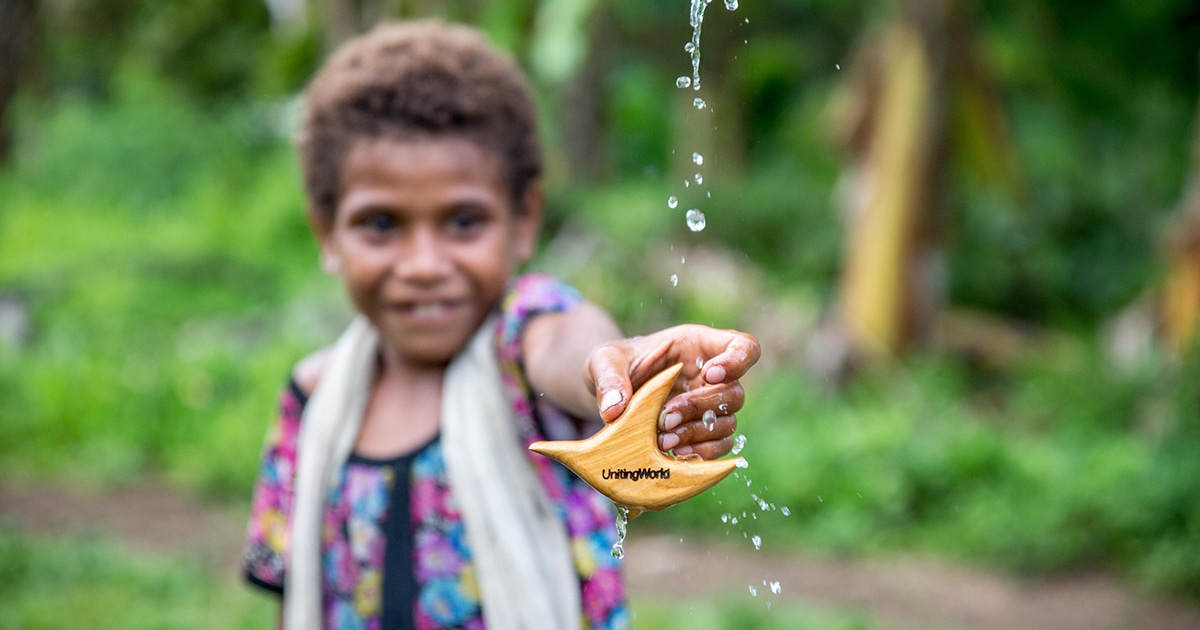
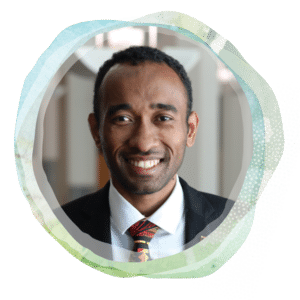
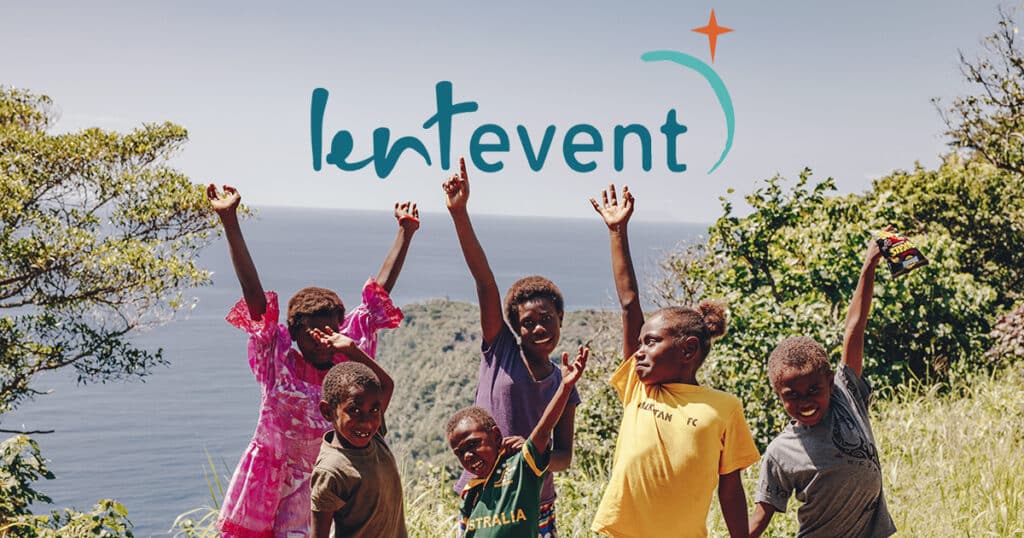
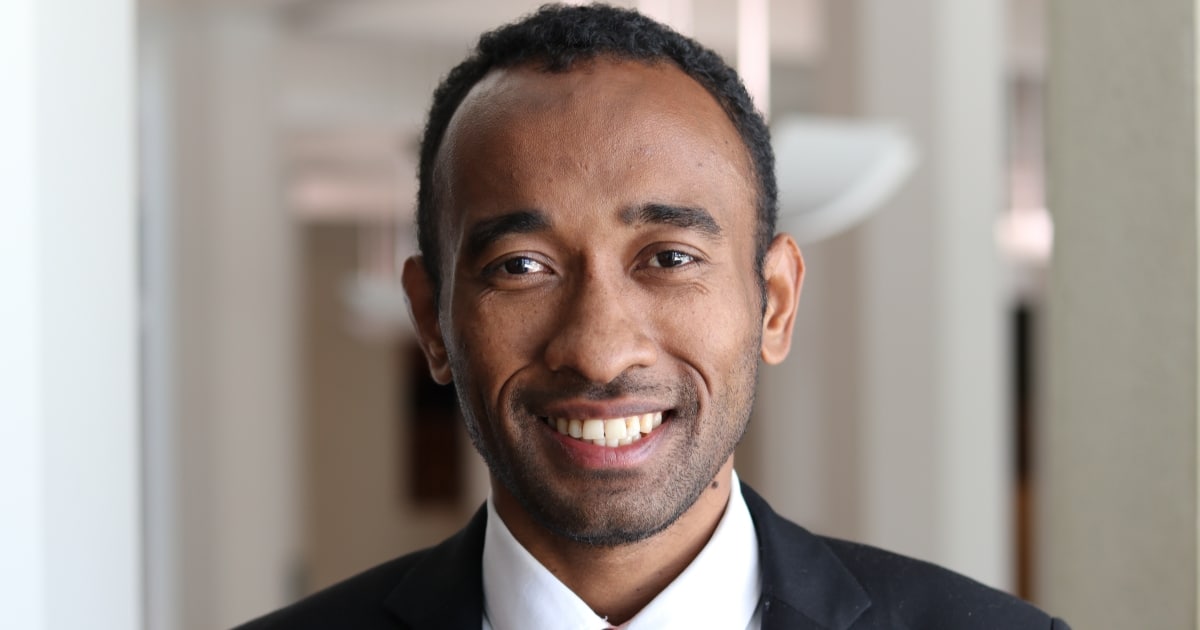
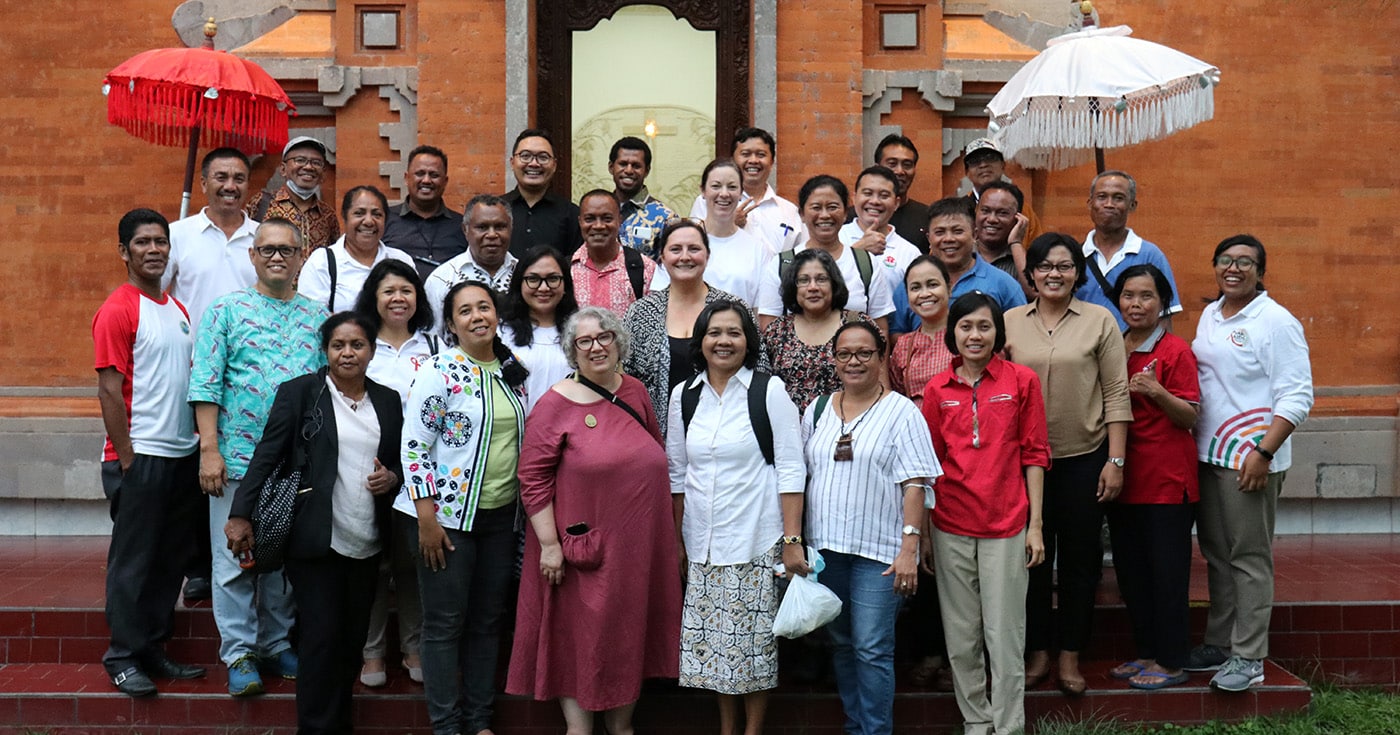
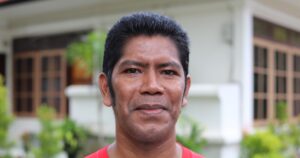 Julio Da Costa
Julio Da Costa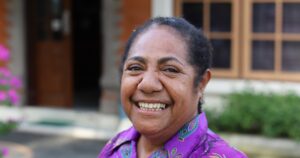 Rev Grietje (Grace) Monim
Rev Grietje (Grace) Monim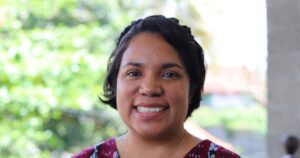 Marisa Christine
Marisa Christine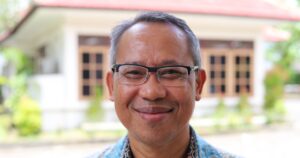 Bishop Nyoman Agustinus
Bishop Nyoman Agustinus